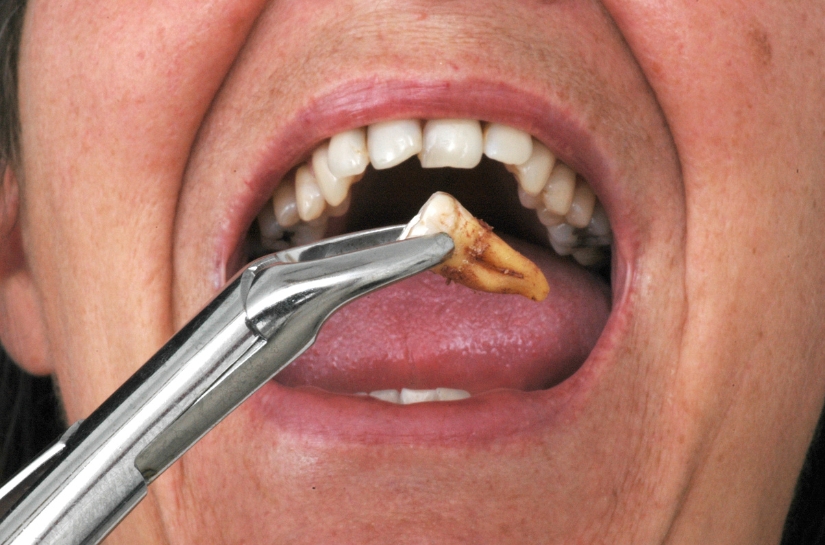1001 W Indiantown Rd, Ste 106, Jupiter, FL 33458
Root Canal vs Extraction: Which is Right for you

Toothaches can be real showstoppers, throwing your day into disarray and leaving you desperately seeking relief. When the culprit behind the pain is a damaged or infected tooth, you might be presented with two treatment options: a root canal or an extraction. Both procedures address the issue, but the process and outcome differ significantly. Choosing the right path can feel overwhelming, especially with conflicting information floating around. This blog aims to shed light on both procedures, empowering you to make an informed decision alongside your dentist. We’ll delve into the whys and how’s of root canals and extractions, exploring their benefits and drawbacks to help you navigate the maze of dental decisions.
Understanding Tooth Damage
Our teeth play a vital role in our everyday lives, allowing us to chew, speak, and maintain a healthy smile. However, despite their strength, they are not invincible and can be susceptible to damage from various sources. Understanding the causes of enamel erosion and damage is crucial for maintaining good oral health and preventing future problems.
Causes of Tooth Damage
- Tooth Decay: This is the most common cause of tooth damage, primarily caused by bacteria in plaque feeding on sugars. As a result, it leads to releasing acids that erode tooth enamel.
- Trauma: Accidents, falls, or sports injuries can chip, crack, or even knock out teeth.
- Bruxism (Teeth Grinding): Involuntary clenching or grinding of teeth can wear down the enamel and lead to cracks or fractures.
- Improper Brushing: Using harsh brushing techniques or brushing too hard can damage the enamel and gums over time.
- Unhealthy Diet: Sugary and acidic foods and beverages can contribute to tooth decay and erosion.
- Dry Mouth: Lack of saliva can increase the risk of tooth decay due to its role in washing away food particles and neutralizing acids.
Effects of Tooth Damage on Oral Health
- Pain and Sensitivity: Damaged teeth can become sensitive to hot, cold, or sweet foods and beverages, causing discomfort and pain.
- Infection: If left untreated, tooth decay can spread to the inner pulp of the tooth, causing an abscess (a pus-filled pocket) and potentially leading to tooth loss.
- Chewing Difficulties: Extensive damage to teeth can make chewing difficult, which can affect overall nutrition and digestion.
- Speech Impediments: In severe cases, missing or damaged teeth can affect speech clarity.
- Reduced Confidence: Damaged teeth can negatively impact self-esteem and confidence due to concerns about aesthetics.
Root Canal: Saving the Fallen Soldier
A root canal, also known as endodontic therapy, aims to preserve the tooth by removing the infected pulp. Here’s a breakdown of the process:
- Numbing the Area: Local anesthesia ensures a pain-free experience.
- Accessing the Pulp: A small opening is created in the tooth crown to access the infected pulp.
- Removing the Infection: Using specialized tools, the dentist carefully removes the infected pulp and cleans the root canals.
- Sealing the Deal: The cleaned canals are filled with a special material, and the tooth is sealed to prevent further infection.
- Crowning Glory (Optional): For structurally compromised teeth, a dental crown might be recommended to restore strength and aesthetics.
Benefits of A Root Canal
- Preserve the natural tooth: This saves the surrounding bone and tissues, maintaining a natural bite and preventing the shifting of other teeth.
- Chew power intact: Natural teeth provide superior chewing function compared to replacements.
- Cost-effective in the long run: While the upfront cost might be higher than an extraction, avoiding future replacements balances it out.
- Aesthetics: Natural teeth look and feel better than replacements.
Tooth Extraction: When the Soldier Can’t Be Saved
Sometimes, the damage to the tooth is so extensive or the infection too severe that a root canal is no longer an option. This is when an extraction becomes necessary. The process involves removing the entire tooth, including the root, from the jawbone.
Benefits of an Extraction
- Faster procedure: Extractions typically require only one appointment.
- Potential cost-effectiveness: In some cases, an extraction might be cheaper upfront than a root canal.
Understanding the Difference
While both procedures address problematic teeth, their approaches are fundamentally different. Root canal aims to save the tooth. On the contrary, the tooth extraction procedure involves the complete removal of the tooth, including its root structure. This option is typically chosen when the tooth is severely damaged, infected beyond saving, or poses a threat to surrounding teeth.
Choosing the Right Path
The decision between a root canal and extraction depends on various factors, including:
- Severity of damage: If the damage is limited to the pulp and the tooth structure is relatively intact, a root canal is usually the preferred option.
- Infection: If the infection is extensive or has spread to the surrounding bone, extraction might be necessary.
- Location of the tooth: Molars, with their multiple roots, can be more challenging to treat with a root canal, sometimes making extraction a more viable option.
Ultimately, the decision between a root canal and an extraction rests on several factors, as mentioned in this comprehensive guide. Consulting with your dentist in Jupiter, FL is crucial for a thorough evaluation and personalized recommendation. Remember, a healthy smile starts with understanding your options and working together with your dental team.





